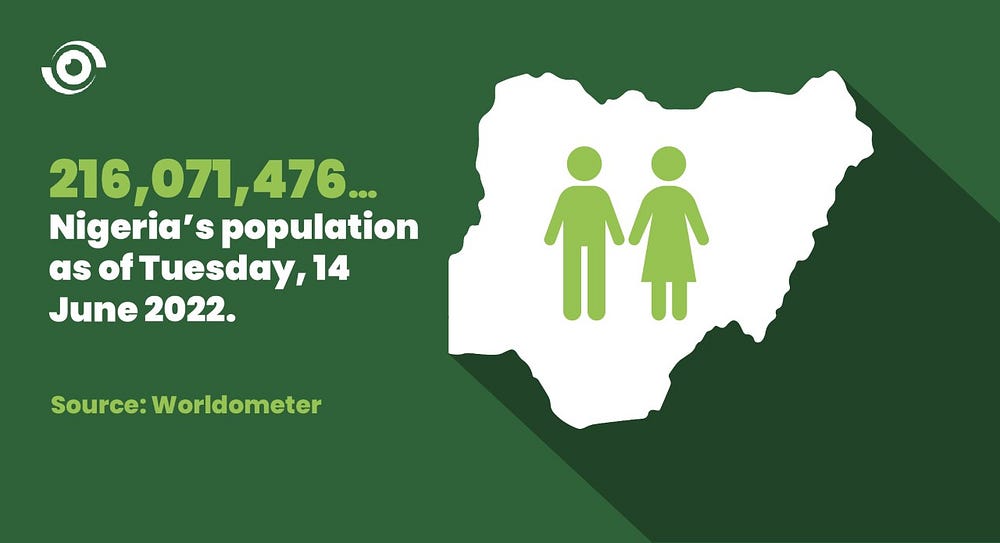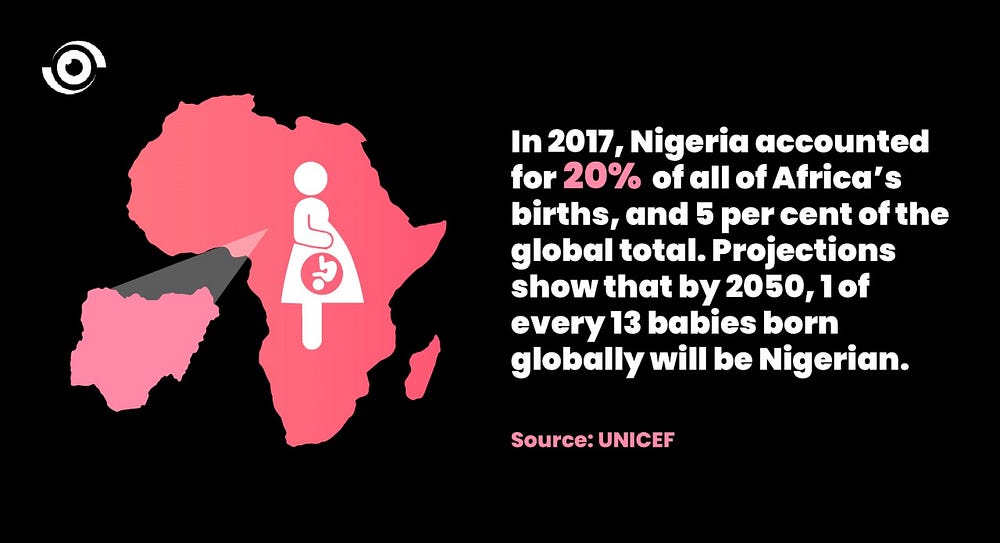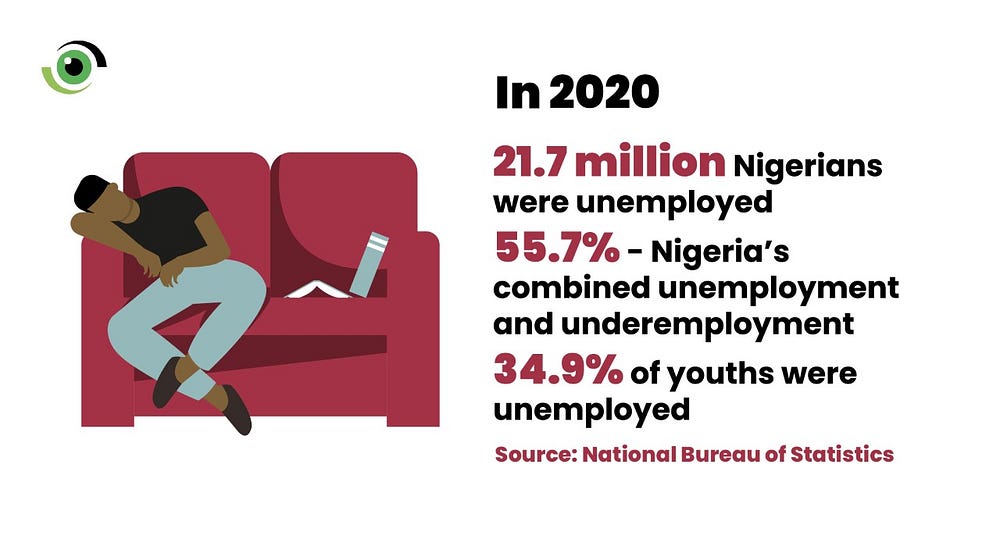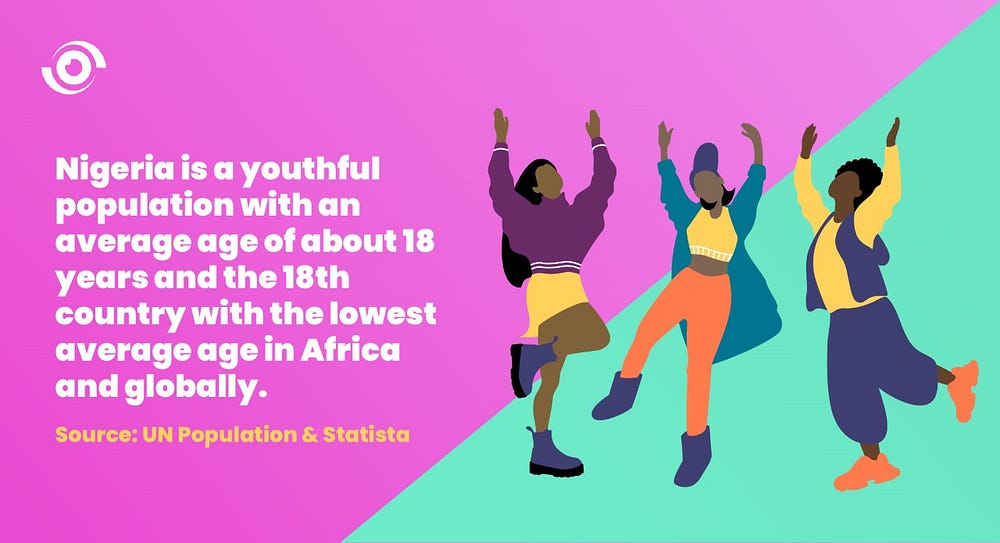My great-grand father had five wives and 23 children, 18 of whom were male. It was said that he was deliberate about having a large family because he was a rich farmer who did not believe in hiring others to do the work when he could produce sons who would grow up to work the land. I don’t know how well this strategy worked, but as the story goes, he fell onto hard times and the large family which was seen as an asset became a liability.
The state of things
In November 2021, Nigeria launched a revised National Policy on Population for Sustainable Development. This was made necessary by concerns about Nigeria’s rising population, current demographic trends and the need to increase national awareness on the importance of population management. The policy aimed to improve the quality of life and standard of living of all Nigerians.

The revision was timely as according to Worldometer, Nigeria’s current population — as of Tuesday, 14 June 2022 — is 216,071,476. UNICEF, in a 2017 report, revealed that Nigeria accounted for 20 per cent of all of Africa’s births, and 5 per cent of the global total, with projections also showing that by 2050, one of every 13 babies born globally will be Nigerian. Further to this, the recently published Lancet Nigeria Commission report estimated that Nigeria’s population is set to increase to 400 million by 2050 and 733 million by 2100. This however assumes a decline in average number of children that women have from the current 5.1 to 3.3 by 2050 and 2.2 by 2100 respectively.

Data from the National Bureau of Statistics on Nigeria’s unemployment rate indicated that as at the second quarter of 2020, 21.7 million Nigerians were unemployed. It further revealed that Nigeria’s combined unemployment rate and underemployment rate is 55.7%. Furthermore, the 2020 National Youth Survey indicated that 34.9% of Nigerian youth are unemployed.

An alarming forecast
Nigeria’s demographic forecast is alarming as the nation has been unable to harness the benefit of its huge and youthful population to expand its labour force and productivity, hence the high level of poverty, unemployment and poor health indices in the country.
A demographic dividend refers to the economic gains of having a higher percentage of working age people as part of a population. Shifts in mortality and fertility impact the age structure of a population and with fewer births each year, a country’s young, dependent population grows smaller in relation to those of working age.
A dividend occurs when there is an increase in the share of the working age population, as compared to other age groups, fewer dependents to support and more disposable income. This, in turn, can spur greater production and investment and accelerate growth.
Nigeria is placed as a youthful population with an average age of about 18 years, according to United Nations 2020 population projections. It is also said to be the 18th country with the lowest average age in Africa and globally.
If handled properly, a youthful population can have a positive impact on a nation’s economy and if not, it could put undue pressure on the country’s public health and education services. Nigeria’s youthful population represents great economic potential; however, the nation’s population is growing without a corresponding increase in the economy, infrastructure and social amenities.

The window of opportunity
According to a UNICEF report, Nigeria is among the many African countries in the pre-dividend stage, that is, it is yet to reach the demographic window of opportunity which is the period when a country’s population structure is the most favourable for accelerated economic growth.
The opportunity to reap a demographic dividend is time sensitive and influenced by policies. If Nigeria and the rest of the African continent fails to make the key investments listed below, they will be unable to reap the benefits of a demographic dividend. In the report, UNICEF recommends three policy actions to create the right socio-economic conditions for Africa’s youth and child population:
- Improve health, social welfare, and protection services to meet international standards; or beyond, in countries close to attaining them.
- Adapt Africa’s educational skills, and vocational learning system through curricula reform and access to technology, to enhance learning outcomes, so Africa’s children and youth can meet the needs of a twenty-first century labour market.
- Secure and ensure the right to protection from violence, exploitation, child marriage and abuse; and remove barriers preventing women and girls from participating fully in community, workplace and political life with enhanced access to reproductive health services.
To achieve a demographic transition, countries must first focus on lowering fertility. One key strategy to achieving this goal is by providing women and men with voluntary family planning information and services and focus on rural communities as that is where the need is greatest. It is important to note that, although family planning is not a means of population control, it is often referenced when discussing population as its primary purpose can help achieve population management.
In 2018, driven by Nigeria’s population statistics, Nigeria Health Watch organised a policy dialogue with the theme, “The Elephant in the Room — Men as Change Agents in the Family Planning Discourse” to discuss how to engage men more to support uptake of family planning services and commodities. A policy note from the World Bank highlighted the need for the country to first go through a demographic transition, which would see a shift in the age structure, helped by a declining fertility rate. This would enable the country to reap the accrued benefits of a demographic dividend enabled by a required investment in adolescent girls.
Successive governments have over the years paid lip service to the family planning discourse in Nigeria. However, for the country to make the necessary investment to meet the demographic dividend window, decisive action must be taken to address Nigeria’s population growth by first investing and increasing access to reproductive health services.
Governments have also lacked the political will to address the needs of the nation’s youth and invest in their growth and development. If the necessary investments are not made in Nigeria’s youth and children, the once-in-a-generation opportunity of a demographic dividend may be replaced by a demographic disaster, characterised by unemployment, poverty and instability, much like the circumstances of my great grandfather.


